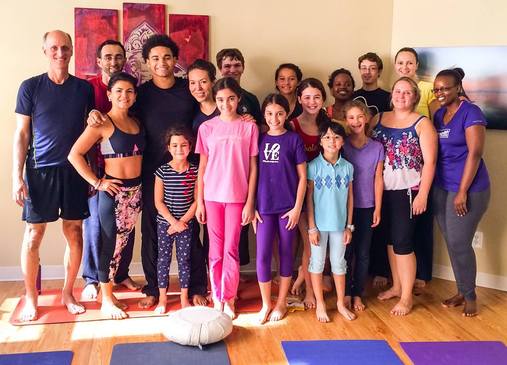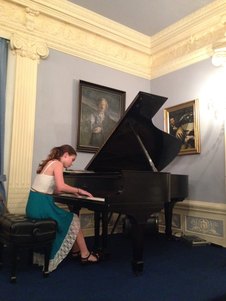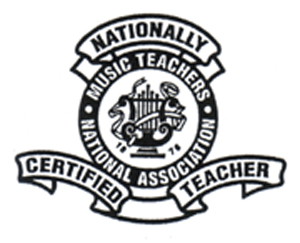 by Audrey Steiner I’ll begin by being blunt: auditioning for college/conservatory is WAY harder than what all your classmates will be going through, complain as they might. You, as a musician, will need to write essays upon essays, obtain recommendation letters, and keep up your grades— just like everyone else applying to college. But on top of that, you will have to prepare one hour of difficult repertoire as well as travel to your auditions. And, once you’ve gotten your acceptance letters, you will not only have to revisit the institutions but also correspond with faculty members to set up trial lessons. You will have to miss quite a bit of school for all of these commitments! If I could change one thing about my application/audition process, I would have began my audition repertoire much earlier. My circumstance was unique in that I had no clue I wanted to pursue music until shortly before my senior year began. So, I needed to learn and memorize a number of brand-new pieces during the fall and winter in order to satisfy audition requirements. This was incredibly stressful, so I would suggest you begin thinking about your college repertoire as early as you can to avoid this stress. That way, you’re performing pieces you feel confident about at your audition without having to worry about learning new pieces. Auditions are generally similar: show up early, get a practice room, freak out more than you should, march out on stage and go for it. I did, however, have a particularly memorable audition experience at the Boston Conservatory that I would like to share. I had been particularly nervous about my Boston Conservatory audition. According to the brochures, the piano professors there were very distinguished performers. I headed to the audition location five minutes before my time slot. A grad student with glasses and brown curly hair stood at a podium outside the double-doors into the audition space. I walked up to him to tell him my name, and he checked me off the list. He looked uncannily like Josh Groban. He tried to help me relax by making small talk and joking around until I was called in. The first thing that happened once I had entered the audition room was that the head piano professor ran through my list of repertoire aloud, double-checking to make sure it was correct. It was. I had double, triple-checked my repertoire list before sending it in, of course: Chopin Scherzo, Bach Prelude and Fugue, Chopin Étude, Ginastera Danzas Argentinas and a Beethoven Sonata, in that order. I had written the Beethoven at the bottom of the list strategically; although I was confident about the first movement, I had barely finished memorizing the second third movements two weeks earlier. “You are performing the Waldstein Sonata, first movement?” The distinguished piano professor asked me with a tilt of his distinguished head. “All movements,” I corrected him. The audition requirement was a “Complete Classical Sonata,” so I don’t know why he assumed that I was playing the first movement only. Unless… did he somehow know that I wasn’t confident about the third movement? But how did he find that out? What if... “Oh, oh. Yes. Of course. My mistake. Please,” he said, interrupting my paranoid thoughts. He gestured grandiosely to the stage and took a seat at the long panel table. He clasped his hands together properly. I ascended the three steps and walked towards center stage. Eight distinguished heads followed my careful approach to the piano. I wondered if they could tell that I had to focus on not tripping on the fabric of the too-long dress pants I was wearing. I sat down in front of the concert grand, the bench squeaking quietly. Natural light shone in through a large window and cradled me in a supportive warmth, telling me, “Hey. This is where you belong: In front of a piano.” Surprisingly enough, the nausea subsided. And I did indeed feel like I belonged right there, in front of that piano. I began with Chopin’s second Scherzo. I lost myself in the piece more than I ever had before. But after a while, I heard a bothersome little noise. Click, click, click. I wasn’t even sure if I was actually hearing a click. What could it have been? Click, click, click. But then, I realized; It was the click of a pen. Just great. One of the judges was a pen clicker. Focus, I told myself. I couldn’t let a small background noise ruin my audition. Clickclickclickclickclickclickclick! The clicking intensified. Was the panel testing me? What was going on? CLICK CLICK CLICK CLICK CLICK CLICK CLICK CLICK!!!!!!!!! Okay, this was starting to get out of hand. Hesitantly, as I continued playing, I turned towards the audition panel. The distinguished piano faculty was standing up, each professor desperately clicking his pen high up in the air in a frenzied manner. “STOP! STOP!” one of them exclaimed. I retracted my hands from the piano and anxiously rubbed them together to keep them warm, hoping I didn’t ruin my chances at being accepted for being so stupid as to not understand the stop signal. Meanwhile, the professors regained their composure. They sat back down, sitting straight-backed, finishing up their notes on my Scherzo performance. “Thank you Audrey,” said the head piano professor as if nothing had happened. “Can we please hear the Bach Fugue?” “Sure,” I chirped, feigning confidence. I sat up in my best, Bach-iest posture and began my Fugue with energy and vigor. I did not hear one pen click from the moment I started through the final chord. My spirits soared as my pinky strummed the final C-sharp; I had played the Bach as close to perfect as I ever had. “Thank you, Audrey,” the professor said after the Bach, his distinguished face stolid. “May we please hear the Waldstein?” “The first movement?” I asked nonchalantly, though every fiber of my being was pleading that they would indeed listen to only the first movement. “Yes, the first movement, I’d say,” the professor confirmed, looking to his colleagues, who all nodded their distinguished heads in agreement. PHEW. The rest of the audition went smoothly. I stopped at every pen click, and I performed every piece with passion and security. When I emerged from the audition room, Groban Grad congratulated me on such a great audition. “You sounded amazing!” he told me enthusiastically. This made me smile big. “Thanks!” I said. But there wasn’t much time for celebration; I had to go to a swim meet! _____ As you can see, my audition experience at BoCo was the most memorable, mostly due to the whole pen-clicking ordeal. And yes, although I missed the stop signal, I did get accepted! I honestly wish I could thank Groban Grad for being so kind to me before the auditions; it really helped. At other schools, the volunteer grad students didn’t do much but take down my name. Once I heard from all of my colleges and conservatories, choosing my next “home” was harder than preparing the auditions! I quickly narrowed my choices down to three schools (Boston Conservatory, Lawrence University and Conservatory, Notre Dame). They are all wonderful places, but they all had their pros and cons. Despite all of the hard work I put into live auditions, I decided to attend the University of Notre Dame (not a conservatory— I simply sent in a number of videos to their music department. No live audition necessary). But that does not mean I’m giving up on a musical career. I believe I can get a great musical education in their small, intimate piano department as I study in their performance-based B.A. program. I’m also looking forward to double-majoring in music and another area I’m interested in! To finish up, I’m giving you two big things that help me when I’m nervous: 1. Chill! I should be the last person telling you that, as I certainly am not the chill-est person. But do your best to have a “whatever” attitude about the prospect of messing up. Even if you go out on stage and fail miserably (you trip as you walk across the stage; as you sit down, your pants rip; you forget all your pieces; you cry visibly and audibly, everyone laughs at you backstage), you’ll be all right. You may never have to see those people again! And no one can take away your love of music. It’s yours and it will always be part of you, no matter how one audition goes. 2. Remember your passion, always! Why do you do what you do? Our love of piano trumps all our insecurities: What will they think of me? Will I mess up? Will I forget? Who cares! Next time you’re scared to play the piano tell yourself that you LOVE piano. You hate NOT playing it. It’s miserable to be near a piano while NOT playing it! Remember that at your auditions!!
2 Comments
Guest blog by Olivia Williams (Piano Prodigies student)
What does the word “nervous” mean to you? Do your thoughts draw a picture of failure? Some might think of green faces expecting to tip over, others might think of restlessness. I get a little nervous, but my piano teacher Miss Elizabeth helps me think of ways to overcome the trepidation of failure and accept the feeling that clouds my stomach. Practicing is a big key to success. Don’t expect the pieces to play by themselves. As musicians, we make sacrifices that some don’t understand in order to keep in touch with our instrument. The piano (or whatever instrument you play) has to become your best friend. Would you want to fight, lose touch, or stay away from that special person? Surely not. Don’t tell yourself it’s impossible—with the right mindset it IS possible. Mental thoughts can jab at your performance, whether they are good or bad. Before a big day, make sure to keep all thoughts and conversations positive. If you make others believe it, it’s much easier to believe. We can admit negativity can do a lot of damage until we are the ones doing it to ourselves. Don’t be shy to yourself -tell yourself that you are going to do well and smile. Earlier today, I competed at the Rockville Competition for Piano and Strings. The judge met me with a smile and I told myself I was going to do well. While sitting on the piano bench, I made sure to take a moment to breathe and even look around (out of my peripheral vision). Glancing at my feet, I felt the floor and I envisioned them reaching into the ground and rooting themselves there. Funny thought perhaps... but it let me know that I wasn’t going anywhere and neither was the piano. We were both stable and I was ready to begin. When I finished my pieces, I felt a pang of sadness that it was over. I realized that I had actually enjoyed the experience. I reflected on how I prepared mentally, and how Miss Elizabeth gave me all of these extremely helpful insights. A week ago, she asked me how I could be thankful for competitions and recitals. Many thoughts ran through my head, because I had not thought of performing in that way. My answer now is I am thankful for the judge’s time, and those who put together performances for students, because some musicians do not get that chance. Each performance is an exciting way to show others how much music means to me. GUEST POST BY KARA IWANOWSKI  The mind, body, and spirit work as one when we play music. This concept was not only discussed but executed at Sid Yoga today with some of Piano Prodigies's own students. When we perform, our bodies work by wiggling our fingers and swaying ourselves to the beat. Our mind is telling us what to do, how to be calm or excited, and if you are playing from memory, what you are supposed to be playing. The spirit is giving you the energy and charisma you need to have a stunning performance that stands out from the rest. None of this can happen, however, when we are not exposed to the idea by itself, no strings attached. Today during the yoga workshop, we worked on our balance, coordination, and strength. Those were exercising our body and mind. Our spirit was involved in the motivation to complete that downward facing dog and to relax ourselves enough to remain in the crow position for more than three seconds. (I, however, could not...) When we put the physical aspect of our mind and body working together and add the mentality of having this sense of purpose and confidence, our spirit, we can achieve something much greater than just a concert. We can captivate the audience and motivate ourselves to be something greater than we were yesterday. When our mind, body, and spirit work together as one, we can inhale life, and exhale music. Kara Iwanowski began playing piano at the age of 5 years old. Now at age 13, Kara continues on her musical journey. Visit her personal website: www.karaiwanowski.weebly.com
Guest Post by Eugene Hix
Freelance writer Eugene Hix is a father of two and a devoted husband –except when he’s writing. When not engrossed in writing though, he is also into horseback riding, camping, and teaching his boys how to play the piano. Even musically inclined piano learners will not progress without instruments to practice on at home. Both beginners and virtuosos have to practice daily to improve their ears, finger taps, and musical sense. If you are in the market for a piano that suits your skill level, budget and space, you need a definitive and easy-to-follow guide. Here are 5 things you need to consider when selecting a piano to buy: Cost Like anything we purchase, pianos vary in price depending on the brand, quality and condition – whether used or brand new. High-end pianos are made from the most durable and finest materials and you could keep them for a long time. However, if your budget is limited, consider buying a piano that is within your range. A pre-owned or second-hand piano is also a cheap option. Purpose Find out the main use of the piano to help you decide which one is best for you. If you are buying a piano to add some accent to your home, then an elegant and sophisticated acoustic piano made of real wood and strings would be a good choice. On the other hand, if you are going to use it daily to sharpen your skills, then a digital or an upright piano would be ideal. Quality Piano is a good investment if you are able to purchase a high-quality one. When selecting from pre-owned or new grand pianos, look for qualities such as pleasing tone, superb finish and responsive keys. Relying solely on what the piano dealer tells you will not guarantee the best deal. If you are clueless on how to inspect the piano’s quality, tag along a seasoned musician or technician to help you make a sound decision. Condition of the Piano A condition of the piano dictates the price as well as your decision-making. If you are buying a used piano, be sure to check the structural condition of its essential parts such as the frame, pedal arms, and keys. Never be persuaded by heavily discounted pianos without testing them thoroughly. Remember a cheap piano is useless if you have to rebuild it. Testing is even more critical when you are buying from individual dealer without a comprehensive warranty. Color Pianos come in different colors and shapes. Typical pianos come in a neutral color, black or white – these three colors are a popular choice among buyers. Mahogany is also a shade preferred by most customers who love the classic style. This also complements most living room interiors. Although the choice of color will not affect your learning progress, if it is going take up a huge space inside your home, the color has to blend with your interior design. Taking all these factors into consideration, you are likely to come home with a satisfied smile because you’re assured that the piano you bought is what you really want. |
AboutElizabeth Borowsky is a pianist, teacher, and composer. She is a Nationally Certified Teacher of Music in Piano (Music Teachers National Association). SubscribeCategories
All
Archives
May 2023
|
Location |
|




 RSS Feed
RSS Feed